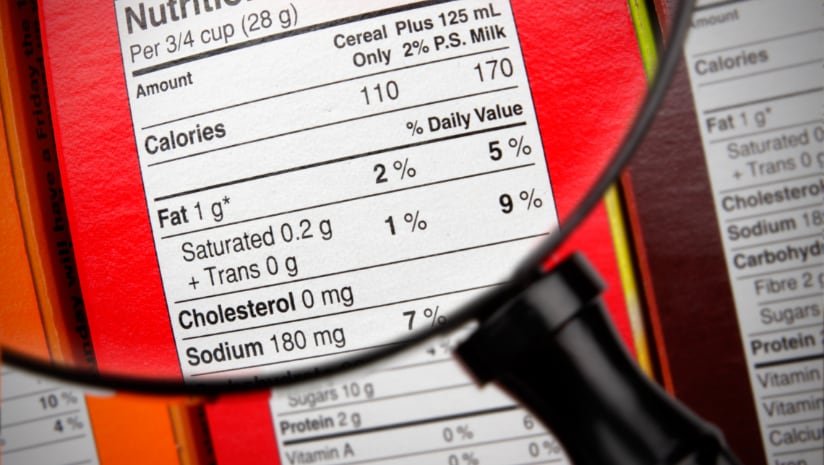Announced yesterday (17 June), the Scottish Government’s new regulations aim to tip the balance of promotions in favour of healthier choices. They form part of a wider move to reshape the food environment and reduce the risk of diet-related diseases like type 2 diabetes, cardiovascular disease and certain cancers.
Coming into force in Autumn 2026 – with a 12-month lead-in period – the rules will limit how and where HFSS products can be promoted in stores and online. Minister for Public Health and Women’s Health Jenni Minto said the changes were long overdue.
Following our consultation in 2024 on Restricting Promotions of Food and Drink High in Fat, Sugar or Salt, Scottish Government will bring forward regulations in Autumn to help create a food environment which better supports healthier choices.
Jenni Minto, Minister for Public Health and Women’s Health, Scottish Government
“Over two-thirds of adults in Scotland live with overweight or obesity and the evidence is clear on the effects that diet and obesity have on health,” she said.
“We’re creating a food environment that supports healthier choices. It’s not about telling people what to eat – it’s about making it easier to eat well.”
Promotions and placement

These changes will be particularly impactful for snack and bakery producers: think biscuits, cakes, pastries, muffins, crisps and chocolate-covered anything. Traditionally, these items have thrived on aggressive multibuy deals and prime shelf space. ‘Two for £1’ on flapjacks, ‘buy one get one free’ on cookies, a huge crisps promo at the end of the aisle: it’s marketing 101 for this category.
Under the new rules, those offers will no longer be allowed if the product is classified as HFSS. The regulations are based on the 2004/05 UK nutrient profiling model, which scores products based on their fat, sugar and salt content relative to other nutrients like fibre and protein.
Unlimited refills of sugary soft drinks will also be banned, particularly in out-of-home settings like cafés and fast food outlets. Placement is another big change: HFSS products will no longer be allowed at checkouts, store entrances, aisle ends or on attention-grabbing digital locations like homepage banners and pop-ups.
So, that snack bar that usually finds its way into a shopper’s basket at the last second? That kind of impulse buy will become a lot harder to engineer.
Not every business will be affected. Stores under 2,000 square feet and specialist outlets such as artisan bakeries or independent chocolatiers, are exempt. But if your business is part of a symbol group, franchise or multi-site operation, the rules likely still apply.
Minto said the intention isn’t to hurt retailers or brands but to rebalance an environment that has been skewed toward unhealthy options. “We know the food on offer and how it’s promoted, influences what people buy. These changes will help shift that influence toward better choices,” she said.
Reformulation and rethinking promotions

For producers, reformulation is one of the clearest ways to adapt. If you can reduce sugar, salt or fat enough to fall below the HFSS threshold, your product is no longer restricted – meaning you can keep using promotional deals and premium placement to drive sales.
Of course, that’s easier said than done. Reformulating without affecting taste, texture or shelf life can be technically demanding and financially risky, especially for small or mid-sized businesses.
That’s where support schemes come in. David Thomson, CEO of the Food and Drink Federation (FDF) Scotland, said his organisation is ready to help. “We welcome the decision from the Scottish Government to align with the regulations in other parts of the UK. This creates a level playing field for businesses selling into Scottish stores compared with England and Wales.”
Thomson added that FDF Scotland’s Reformulation for Health Programme will continue to support companies as they work to make their products healthier. “We’re here to help producers adapt in a way that maintains product appeal while meeting the new criteria.”
For brands that can’t – or don’t want to – reformulate, other strategies will be needed. With traditional multibuys off the table, options like loyalty schemes, social media-led promotions and new product development focused on better-for-you variants could fill the gap.
Support from shoppers

This isn’t just a government-led initiative; there’s growing public backing, too. A recent Food Standards Scotland survey found that 70% of Scots feel there are too many HFSS promotions and 54% support a ban on them – a jump from 49% in mid-2024. That kind of support gives policymakers confidence they’re on the right track.
The consultation that shaped the regulations attracted a wide range of views. Public health advocates urged the government to go further, while industry groups flagged concerns about costs and operational complexity. In response, ministers say they’ve struck a balance – taking decisive action while keeping the rules broadly aligned with those in England and Wales.
“This is a proportionate approach,” said Minto. “We’ve carefully considered the evidence, industry feedback and consumer opinion. The next step is making sure businesses have the support they need to implement the changes successfully.”
The Scottish Government will publish a full Business and Regulatory Impact Assessment alongside practical guidance to support implementation. Local authorities will be responsible for enforcement, using existing powers under the Food Safety Act 1990 and the Food (Scotland) Act 2015.
A turning point

The next year is a vital window for any brand that falls within the HFSS limits to prepare, particularly those in the bakery and snacks sectors. Whether that means reformulating a core range, launching lower-HFSS products or investing in new marketing techniques, those who act early are likely to stay ahead of the curve.
These regulations may feel disruptive but they also present an opportunity. Brands that innovate in the health space or find creative ways to maintain consumer loyalty without relying on price promos could find themselves in a stronger position long-term.
“This is just one part of our wider strategy to support better health and reduce inequalities,” said Minto. “We’ll continue to look at what else can be done to support a healthier food environment through our Population Health Framework.”
Scotland’s HFSS crackdown marks a clear shift in how food will be sold and promoted. For producers, it’s not just about compliance – it’s about adapting to a future where healthier eating isn’t just encouraged but embedded in the retail landscape.




